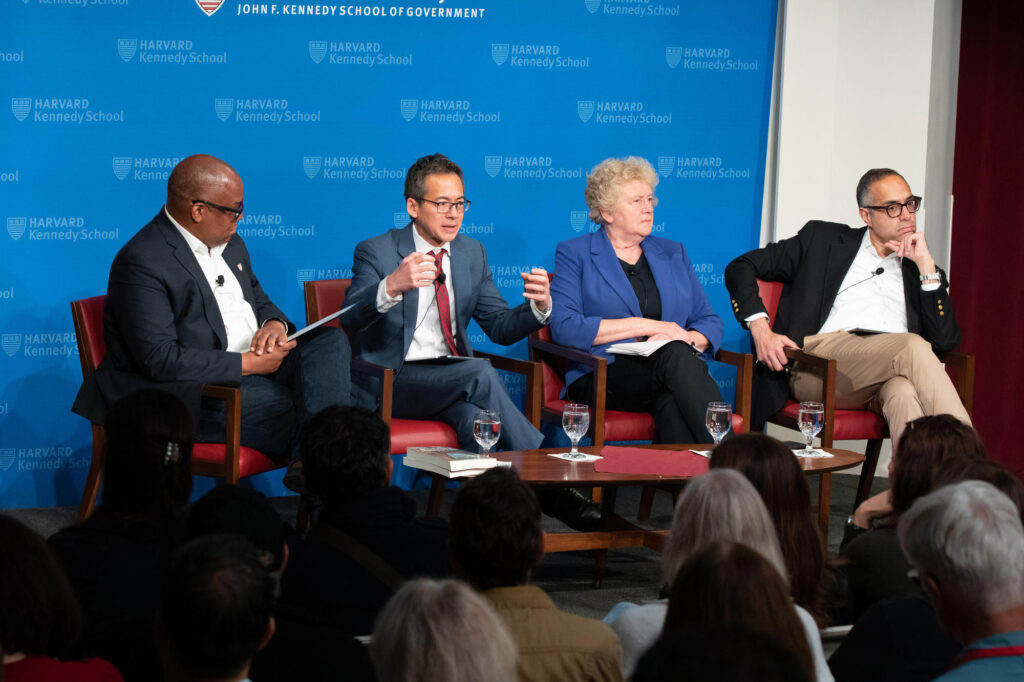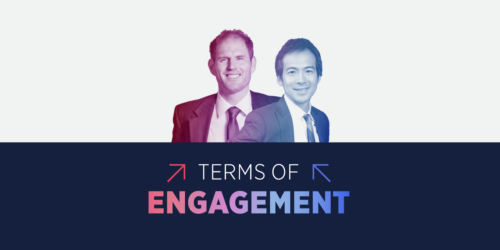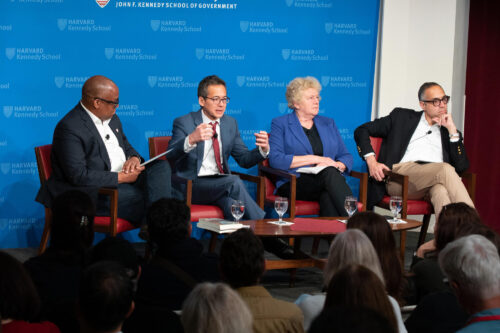Only 19% of Americans today trust the government to do the right thing noted Kahlil Byrd MC/MPA 2003, a political advisor and entrepreneur who helped lead a panel discussion on threats to democracy during the 2023 Harvard Kennedy School alumni reunion. Featuring Kennedy School professors Archon Fung, Pippa Norris, and Tarek Masoud, the discussion addressed many of the challenges facing democracy around the world today — and laid out a path to help reverse these worrying trends.
The following excerpts were taken from the discussion and have been edited for clarity.
Archon Fung on why democracy is so fragile in the US right now:
“Not only can we not agree on what’s true or untrue, but we also have very polarized views about the institutions that we can trust to tell us the truth… And there is a high level of polarization about whether we can rely on them to do that. Unless we can agree on the methods of getting to what is true and what is not and what will work and what won’t, I think we have a pretty sorry chance of solving some of our country’s big existential crises.”
Pippa Norris highlights how shifting values, visions, and identities have led to a crisis of democracy:
“The trouble is that that long-term liberal arc has produced losers, cultural losers people who feel that their values are not respected, the values of faith and religion, the values of family and
traditional marriage and binary gender identities, the values of the flag and patriotism and nationalism. And that group is a large group, but it’s becoming a minority. However, it’s still strong and it’s still enough when people are mobilized.
“If you have differences on issues like welfare spending or how much you spend on education, you can come to a resolution. If you have different visions of democracy, or what it is to be a citizen, or what you want from your citizens and how they should be able to participate or have their voice heard in other ways, then you can’t agree on the rules of the game.”

Tarek Masoud argues there’s still reason for optimism in American democracy:
“The reason I seem upbeat about democracy in America hinges on my definition of democracy… Think about what you need to have free and fair elections, because that is a key rock bottom criterion here. You need freedom of association, freedom of speech, and a handful of other things that I think are pretty substantial, that we all care about. And in the case of America, I don’t think those things are under dramatic threat.”
“In my studies, I particularly focus on the Arabic-speaking Middle East, and just developing countries in general where we would be so lucky if we could have the kind of conversation about improving the democratic quality that we are having here in the United States. That would be a dream for us.”
We need big ideas to move democracy forward:
“The question in America is if you really try to have a serious debate about the constitutional issues, could there be enough agreement in the room that it wouldn’t basically get worse rather than better? And that’s the big danger. You’re opening up the rules of the game. And I think, by the way, the Kennedy School should really play a big role in this conversation. I think it would be an important forum…,” says Pippa Norris.
“I think if I had a magic wand, it would be multi-party democracy in the US, I think there should be a Biden party, a MAGA party, a Liz Cheney Mitt Romney party, AOC Bernie party, maybe a Joe Lieberman Andrew Yang party. And I think that would make things better,” notes Archon Fung.
“We are obviously living in a time where people evidence a great deal of discomfort in hearing opposing points of view. I think it’s really important for us to be agents of inclusion, and that means the inclusion of political viewpoints that we might not necessarily agree with. I would say one of the most important things that I think this community could do, could be to become agents of the creation of space for opposing points of view,” says Tarek Massoud





